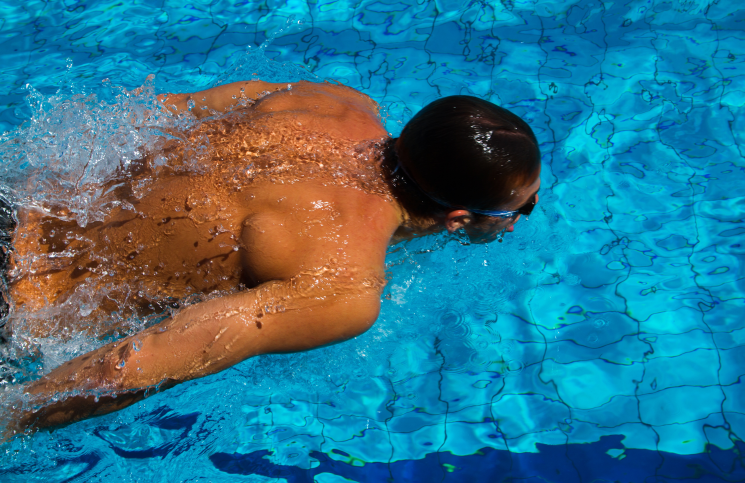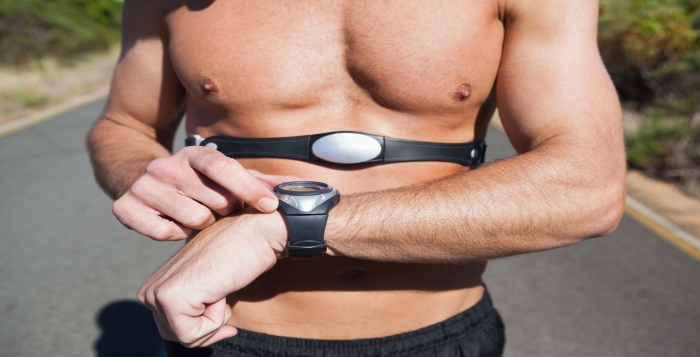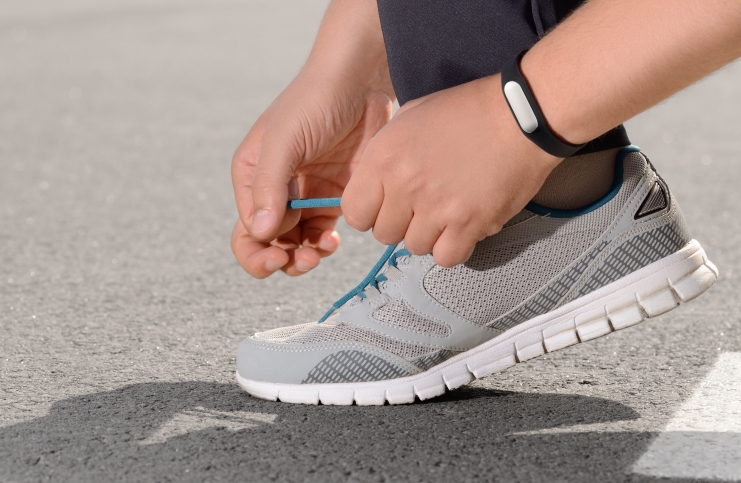Swimming is a great way to get your daily dose of low impact, heart healthy exercise. It burns more calories than most other workouts, lowers stress, and makes you happier and healthier. Learn more about these and other benefits you can take advantage of by taking a dip for a half-hour or more a few times a week.
1. Swimming Burns Plenty of Calories
Walking burns approximately 100 calories per half hour. Running at a moderate pace for the same amount of time will net around 300 calories burned. Riding your bike will zap somewhere in the neighborhood of 240 calories per 30-minute ride. Swimming burns up to 400 calories in that same time frame, while also working every muscle group in our body.
2. Swimming Makes You Stronger
Swimming is the equipment free equivalent to working out in the gym with weights and machines. The resistance created by the water is up to 50 times stronger than air is, meaning that it takes more effort and will cause your nervous system to respond and make you stronger, if you swim on a regular basis.
3. Swimming Lowers Life/Work Stress Levels
Not only does swimming burn more calories than many popular forms of cardio exercise, it’s a very cathartic experience when you jump into the pool and get your body under the water. Water has a way of cleansing us internally too, as well as externally. The exercise itself burns off excess stress hormone (cortisol) and blood sugar which is essential to help manage stress from the home and office.
4. Swimming Makes You Feel Happier

Swimming, like any moderately intense exercise causes our brains to release serotonin (ie., happy hormones.) Low serotonin levels and/or serotonin resistance is the top cause and effect of depression, moodiness, rage, along with other anti-social behaviors that lead to people feeling unhappy.
5. Swimming Makes You Sleep Better
Regular, intense exercise has a profound effect on sleep quality. Up to 70% of people who exercise vigorously report they rarely have any trouble sleeping. Unfortunately, swimming and other exercise have not proved to be helpful in the treatment of those who suffer from insomnia, according to several extensive studies that include this one by sleep researcher Dr. Kelly Glazer Baron.
6. Swimming’s low-impact
Swimming in either freshwater or saltwater is the lowest impact exercise on the planet. While the intensity of the exercise is greater, the strain on your limbs and ligaments is non-existant. Performing aerobics in the shallow end of the pool is a great way for people with physical limitations to minimize back, ankle, knee and hip strain too.
7. Swimming is Heart-Friendly

As water encircles your body it provides a positive, squeezing pressure that helps improve the diastolic function of your heart (blood pressure between beats), while also reducing BPM’s (beats per minute) by upwards of 15% over what the body would require when exercising outside the pool. The surprisingly lower demands on the heart from swimming is why people recovering from a heart attack or stroke are encouraged to get in the pool and exercise.
Potential Drawbacks of Swimming
• Drowning Dangers: Obviously, you can drown quite easily while swimming. This becomes an even greater danger if you’re swimming unsupervised. Even greater is the danger that comes from trying to swim out too far into the lake or ocean. Last, high tide and sudden stormy weather can put you into trouble fast. Make sure other people are around, whether in a pool or open body of water, and always know your physical limits!
• Creatures: Sharks, jellyfish, poisonous snakes, stonefish, and even crocodiles are all dangers you can experience when swimming in oceans and other bodies of water around the world. Make sure you know all the dangers associated with the water you’re swimming in. If in doubt, stick to the pool. See this list of top dangerous sea creatures.
• Chlorine Intoxication: Just as lakes and oceans have their wildlife dangers, public pools can offer a variety of health problems due to the chlorine used to disinfect the water. Chlorine can get into your body through your lungs and skin, causing temporary or even chronic asthma. This can be minimized by ensuring you don’t spend hours swimming in public pools, taking the time to rinse off really well after you get out, and ensuring indoor facilities are properly ventilated to prevent breathing too much of it in.
Conclusion
The potential drawbacks from swimming are easily minimized with a little pre-planning and common sense. The benefits, many of which haven’t been included in this article, far outweigh the dangers. If you’re planning to start swimming soon, see this beginner’s guide for more information.
Happy swimming!




